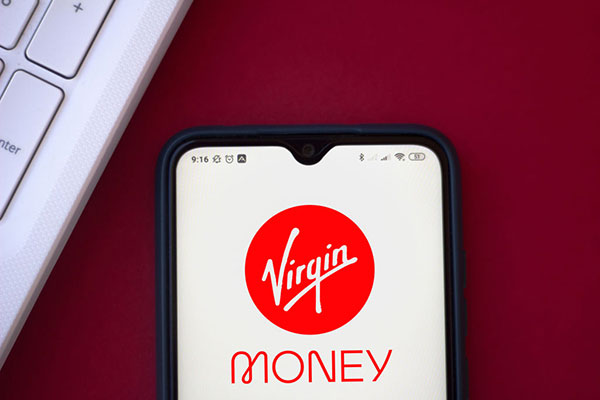Virgin Money’s momentum builds as lending rises
27th July 2021 16:28
by Graeme Evans from interactive investor
Our equities expert outlines what the bank’s latest set of results mean for investors.

Virgin Money (LSE:VMUK) set the standard for its bigger rivals to follow today as the sector's UK reporting season got under way with an update showing margin and lending momentum.
The challenger bank highlighted why it is one of the most fancied stocks of its peer group by also reporting a stronger capital position and confirming it is well placed to grow profitably next year.
Virgin's shares rose 2p to 195p in the FTSE 250 index as the update included the company's first release of credit provisions amid a strengthening economic backdrop.
Investors will be looking for more of the same from tomorrow's interim results by Barclays (LSE:BARC), before Lloyds Banking Group (LSE:LLOY) and NatWest (LSE:NWG) step into the spotlight on Thursday and Friday.
- The Week Ahead: UK banks, Lloyds, Glaxo, Shell, BT, US tech
- Should investors prepare for an autumn market correction?
As well as the potential for the unwinding of impairment provisions, the results from the now well capitalised banking industry will be scrutinised for the outlook on dividends and buybacks after the regulatory shackles around shareholder distributions were lifted.
Virgin Money's update covered the quarter to 30 June, with the lender's half-year results in May including no dividend after payments were withdrawn in the previous financial year.
Hopes over its return were boosted today by an improving outlook on asset quality and the company's CET1 ratio on financial strength lifting by 40 basis points to 14.8%.
There was also optimism on a trading front as Virgin revealed that personal lending balances grew by 2.5% to £5.2 billion in the three months.
A return to credit card spending above pre-Covid levels is a particular positive for the wider banking industry, given that this area attracts higher margins and returns.
Mortgage balances increased 0.7% to £58.7 billion during a period of buoyant house market activity, but business lending fell 2.4% in the quarter to £8.7 billion due to more borrowers starting to repay loans taken under government support schemes.
The benefits of deposit repricing meant Virgin's net interest margin, which is the gap between what it pays savers and charges borrowers, improved to 1.68% from the 1.6% seen last time and will now be slightly higher than its previous guidance for the financial year.
- Jim O’Neill: where retail investors should look next
- Subscribe to the ii YouTube channel and catch all our latest interviews and video content
Today's £19 million unwinding of provisions made previously for bad loans was the company's first of the current cycle, with the potential for more alongside full-year results in the autumn.
Analysts at Peel Hunt said today they expect double-digit increases to full-year earnings forecasts based on key operating trends evolving faster than consensus expectations.
They note that shares are still undervalued despite doubling over the past year, with the broker having a target price of 241p.
UBS banking analyst Jason Napier is at 225p after previously backing Virgin Money and Barclays as his two favoured picks among the UK lenders.
He said today: “Given the strength of the domestic recovery and growth to come from cost operating leverage we think Virgin is extremely attractively valued.”
These articles are provided for information purposes only. Occasionally, an opinion about whether to buy or sell a specific investment may be provided by third parties. The content is not intended to be a personal recommendation to buy or sell any financial instrument or product, or to adopt any investment strategy as it is not provided based on an assessment of your investing knowledge and experience, your financial situation or your investment objectives. The value of your investments, and the income derived from them, may go down as well as up. You may not get back all the money that you invest. The investments referred to in this article may not be suitable for all investors, and if in doubt, an investor should seek advice from a qualified investment adviser.
Full performance can be found on the company or index summary page on the interactive investor website. Simply click on the company's or index name highlighted in the article.